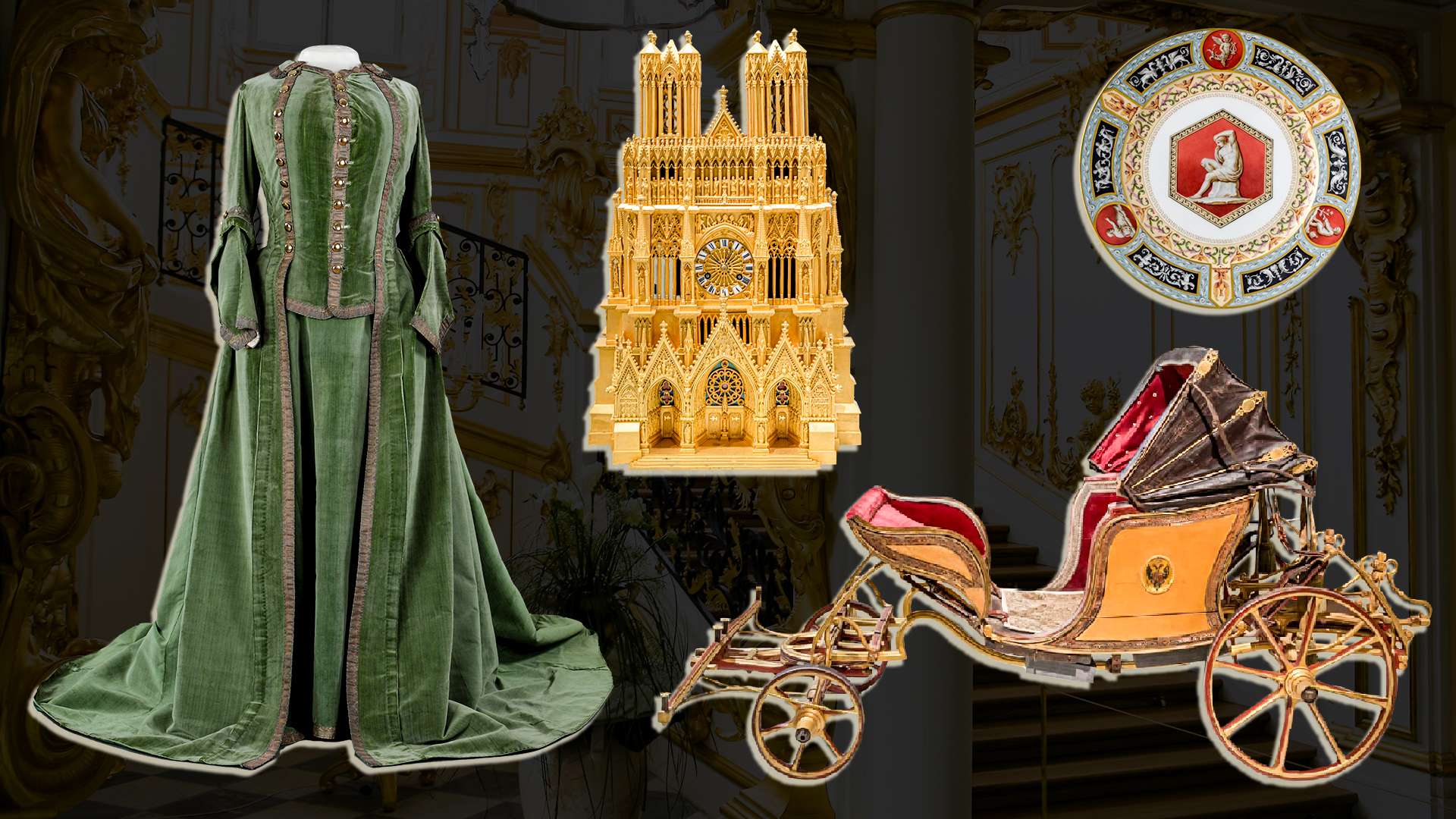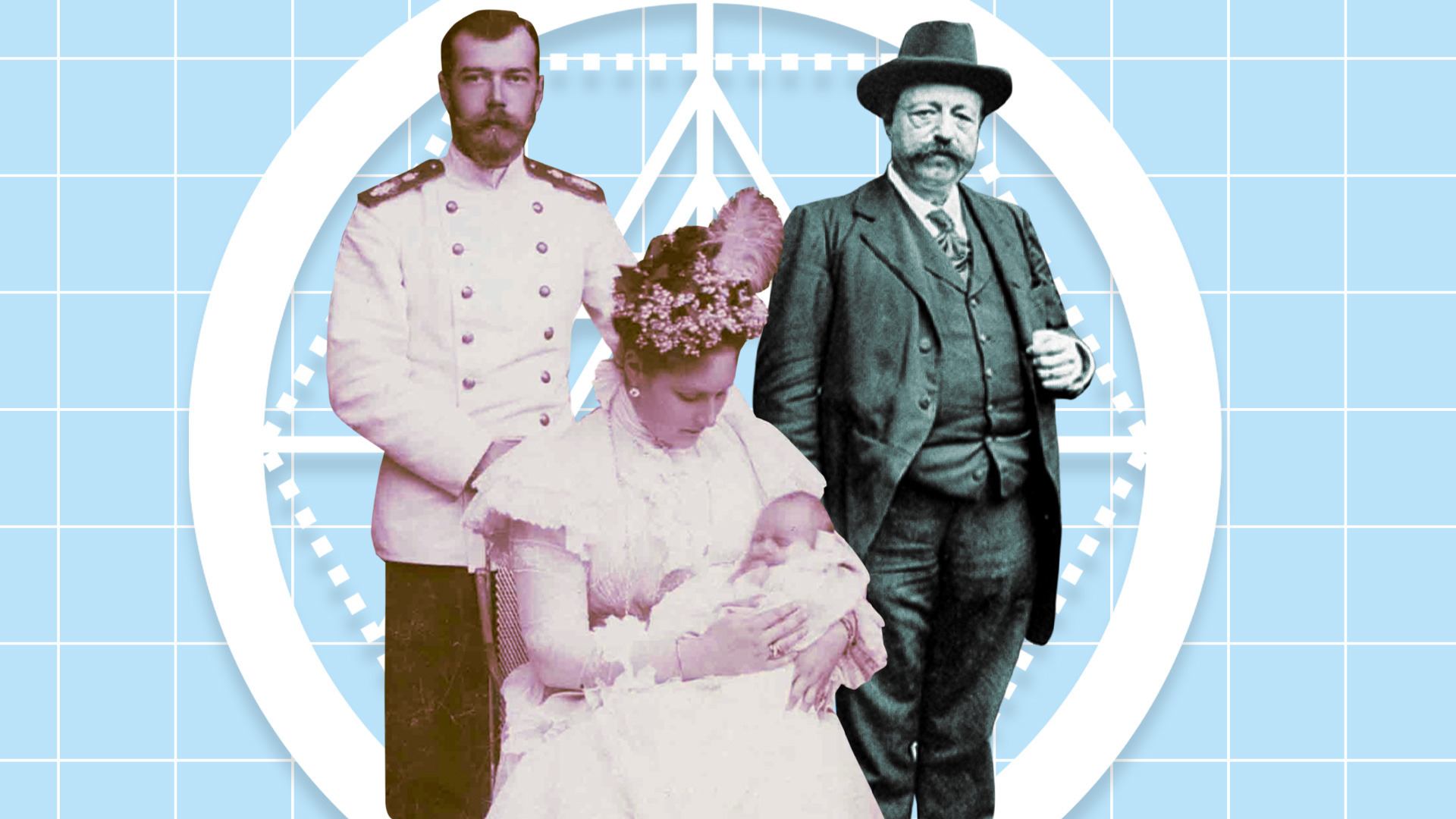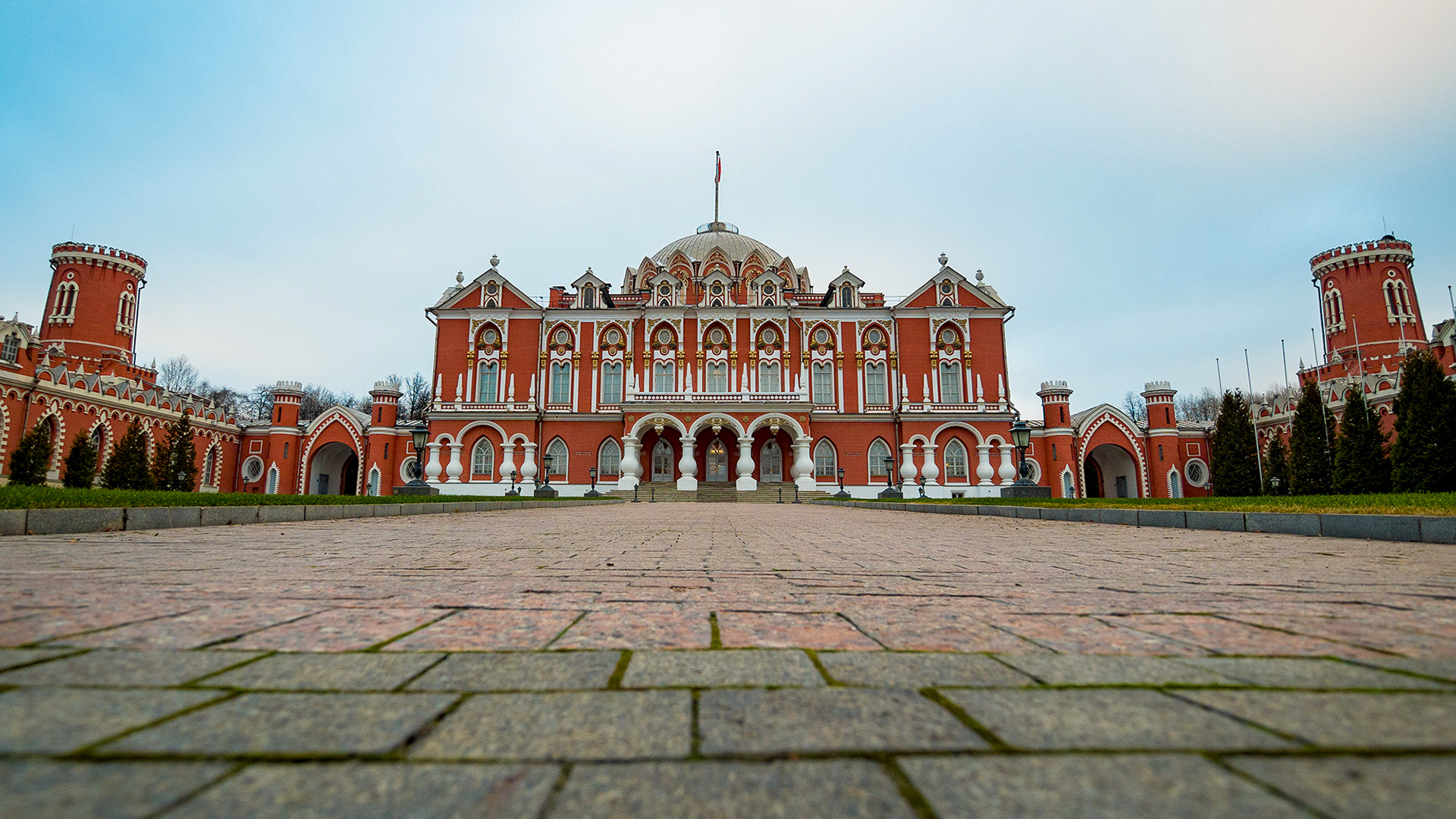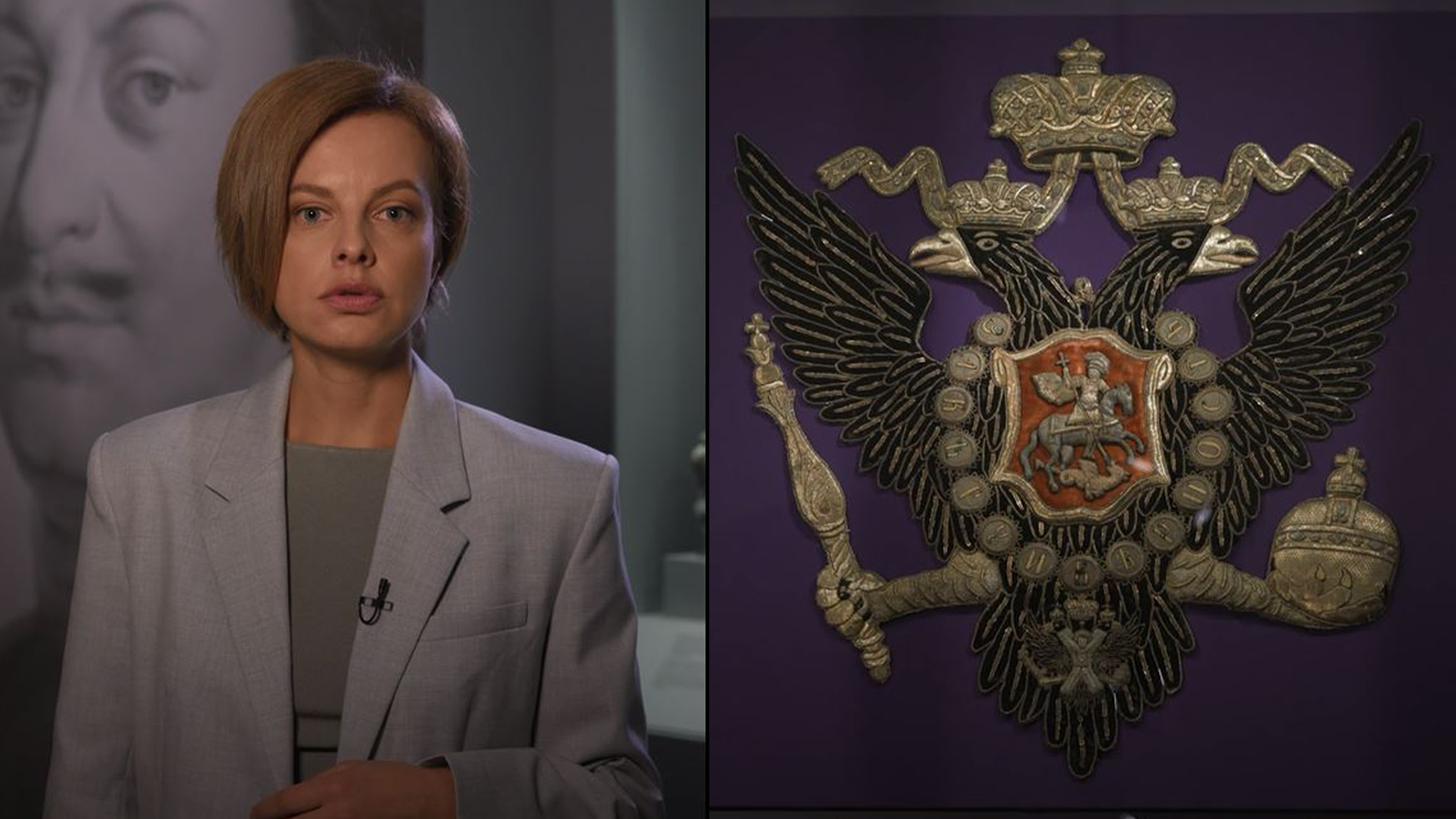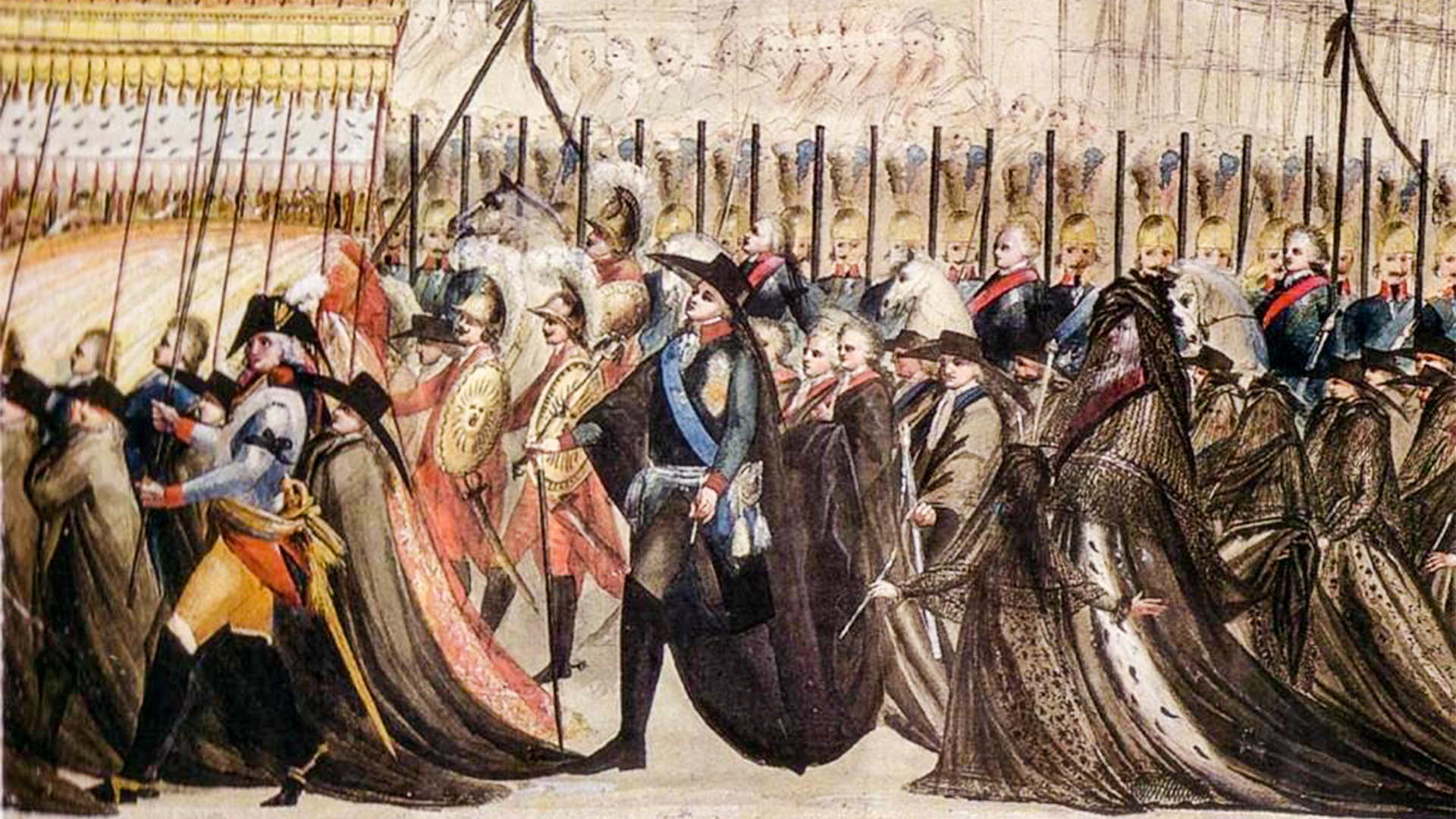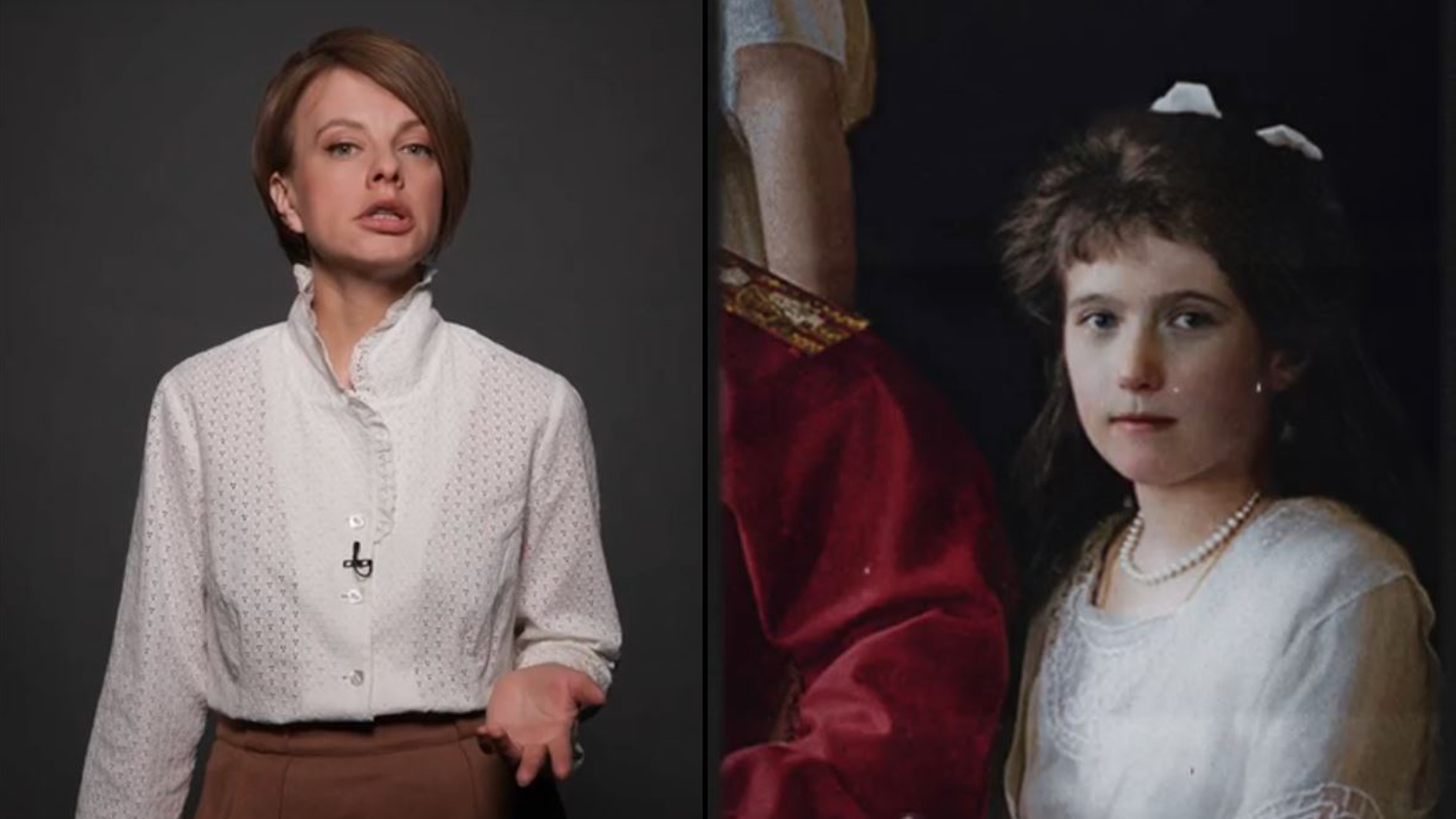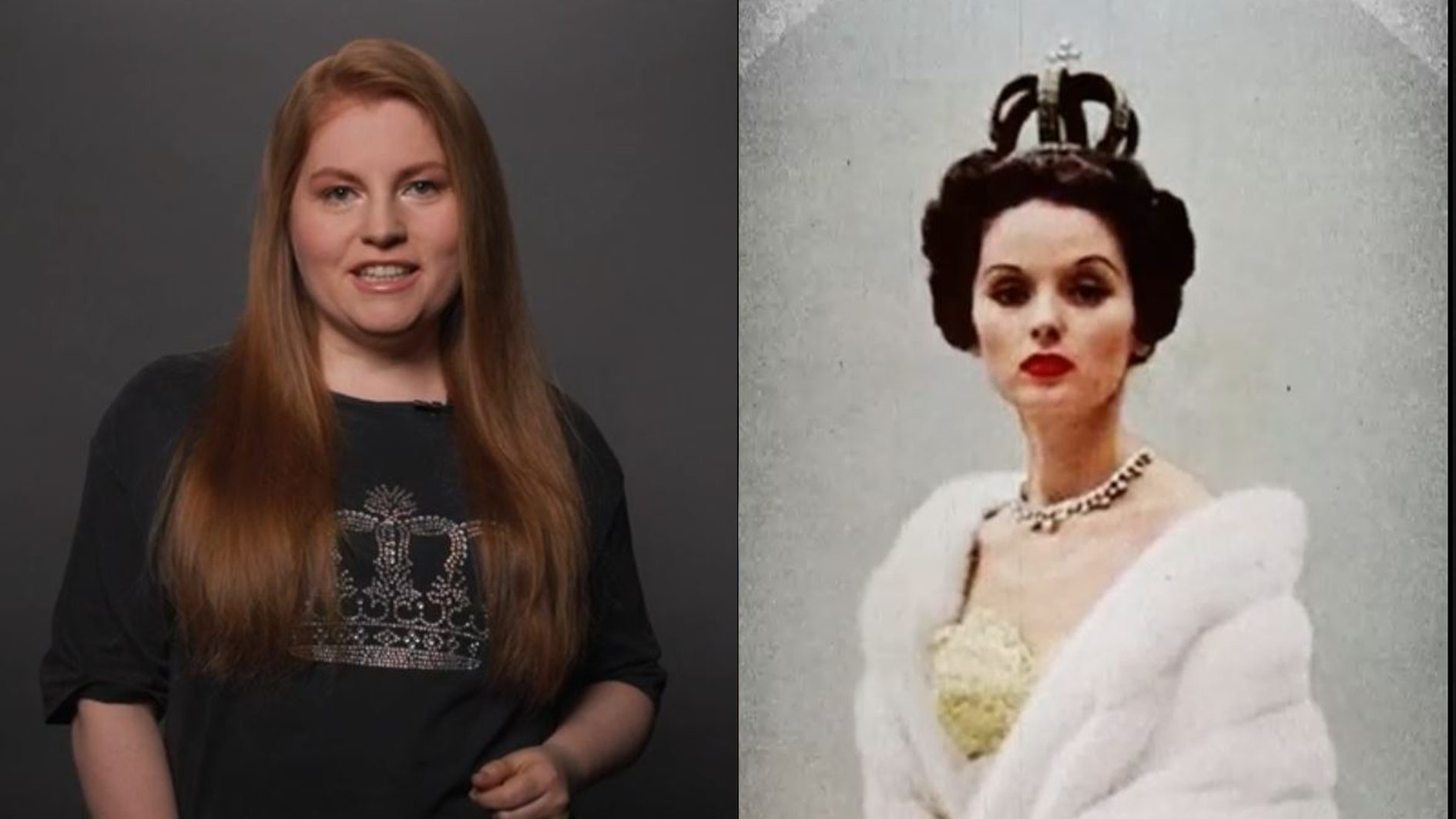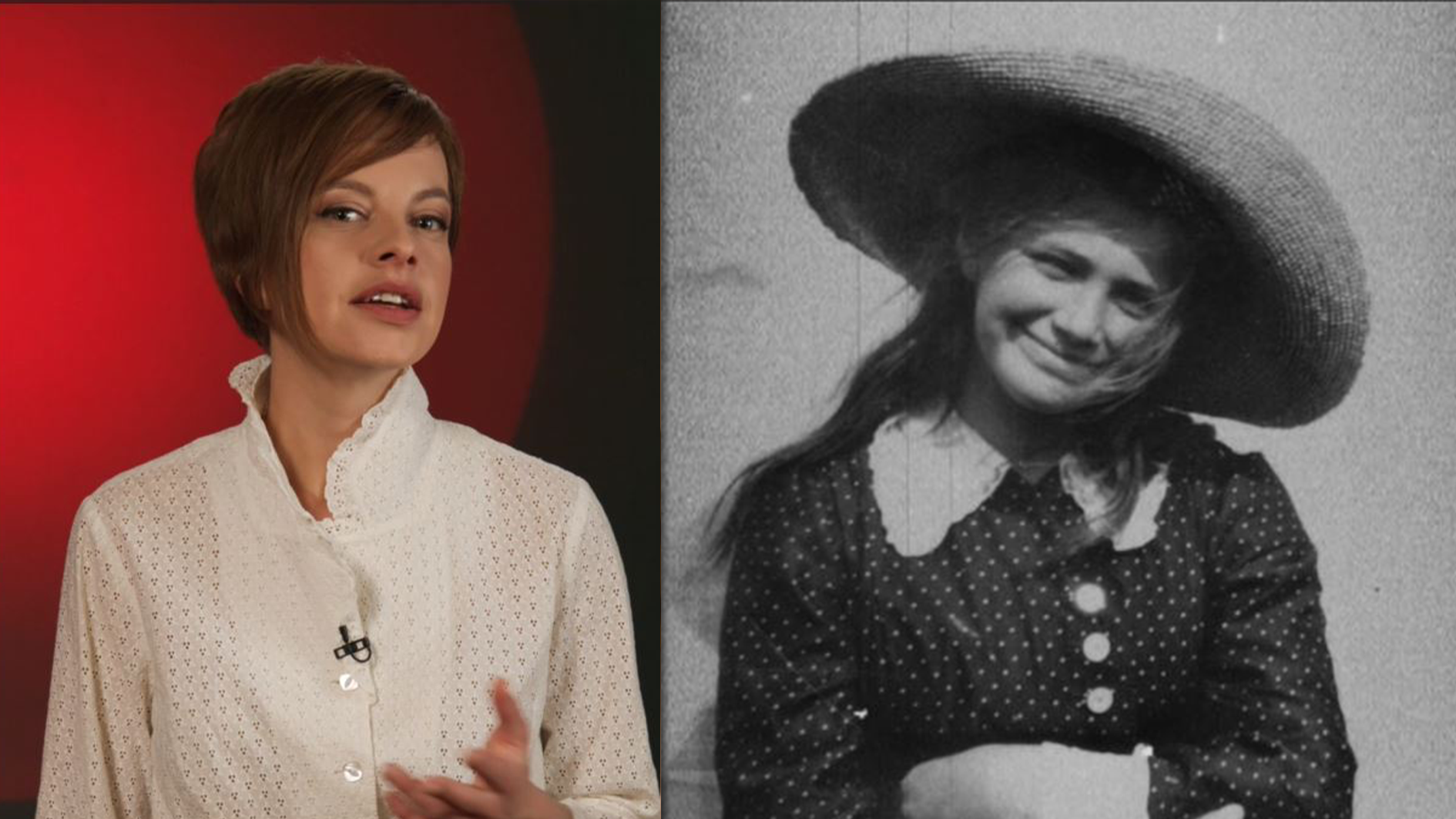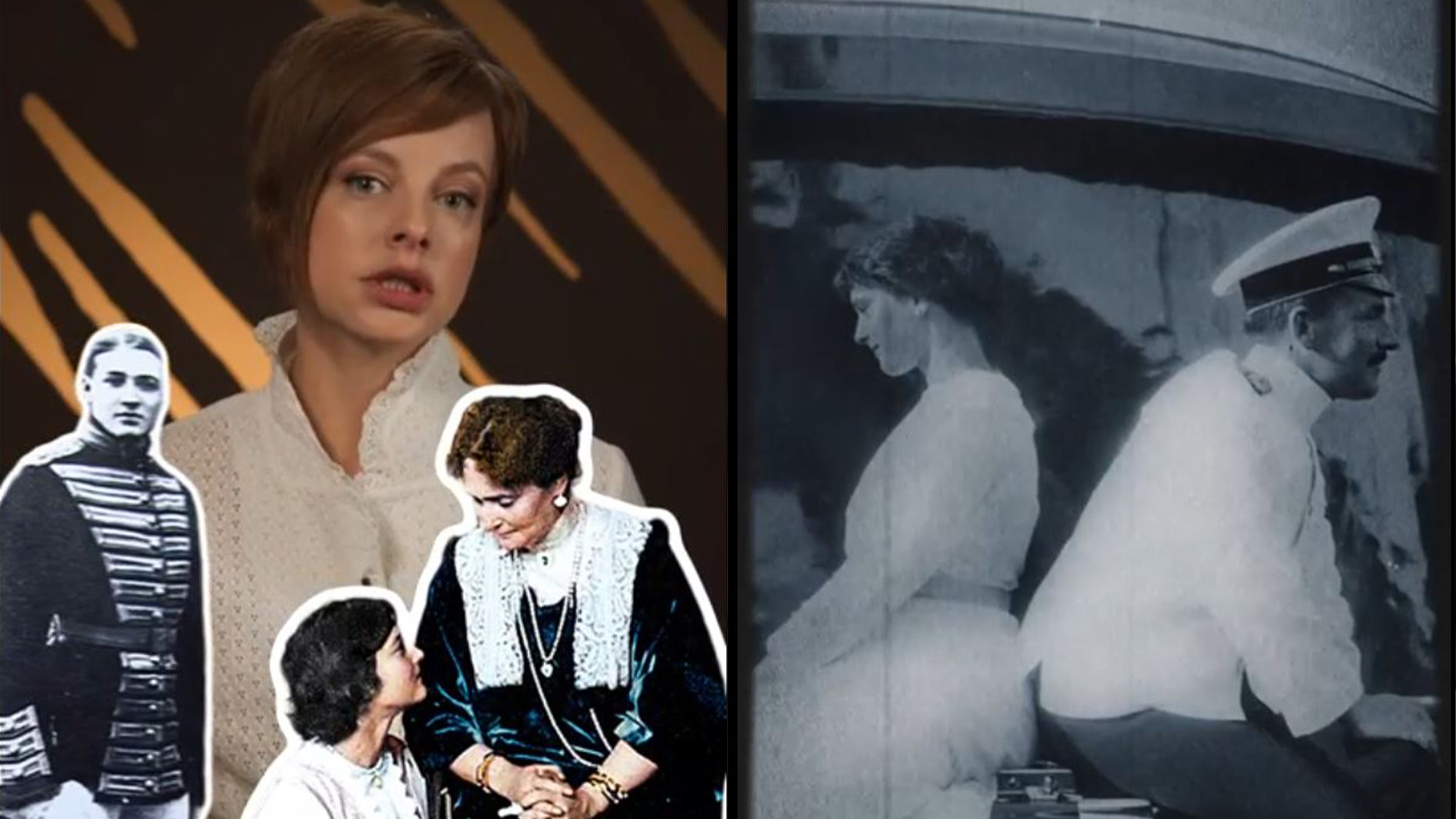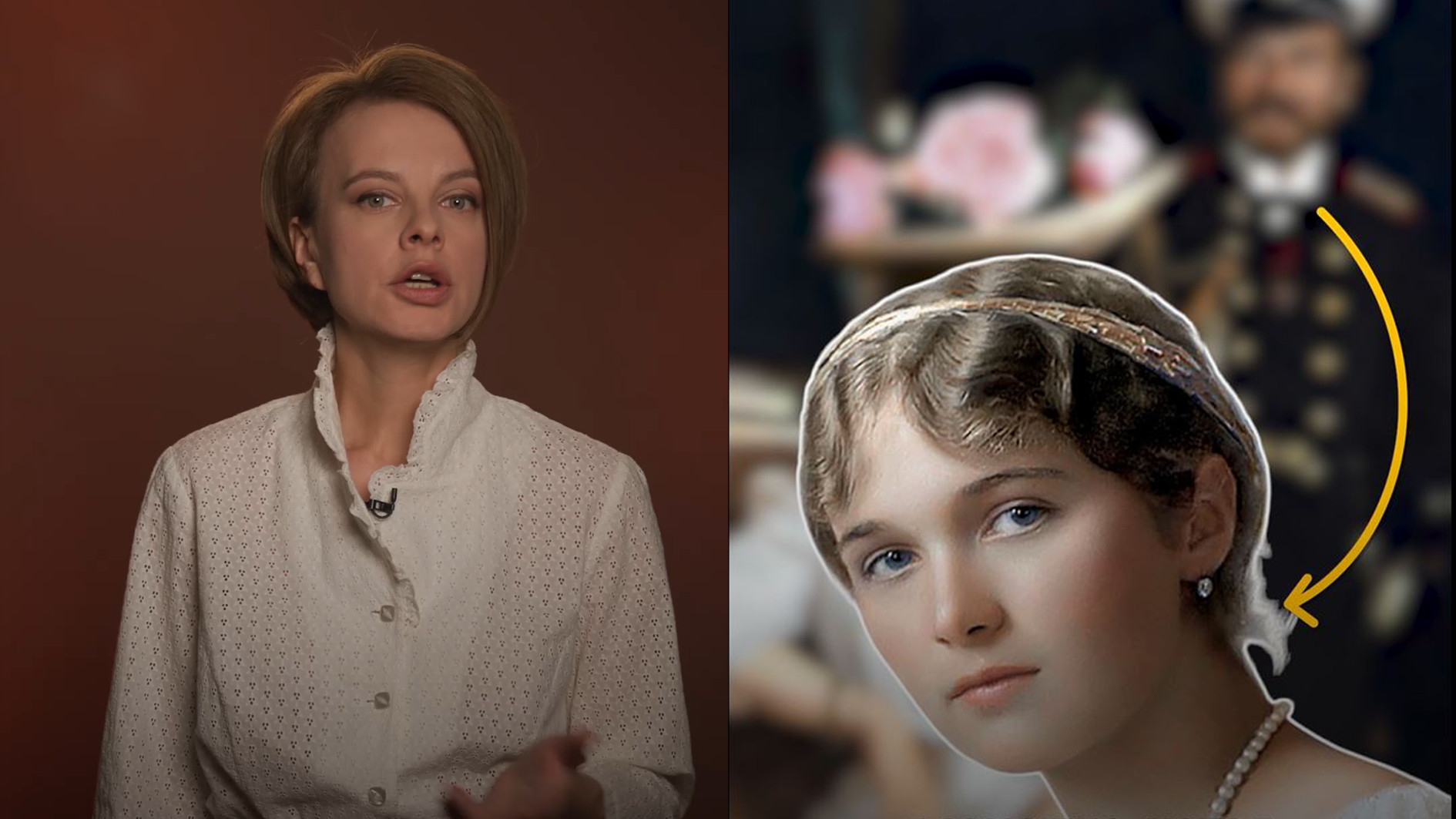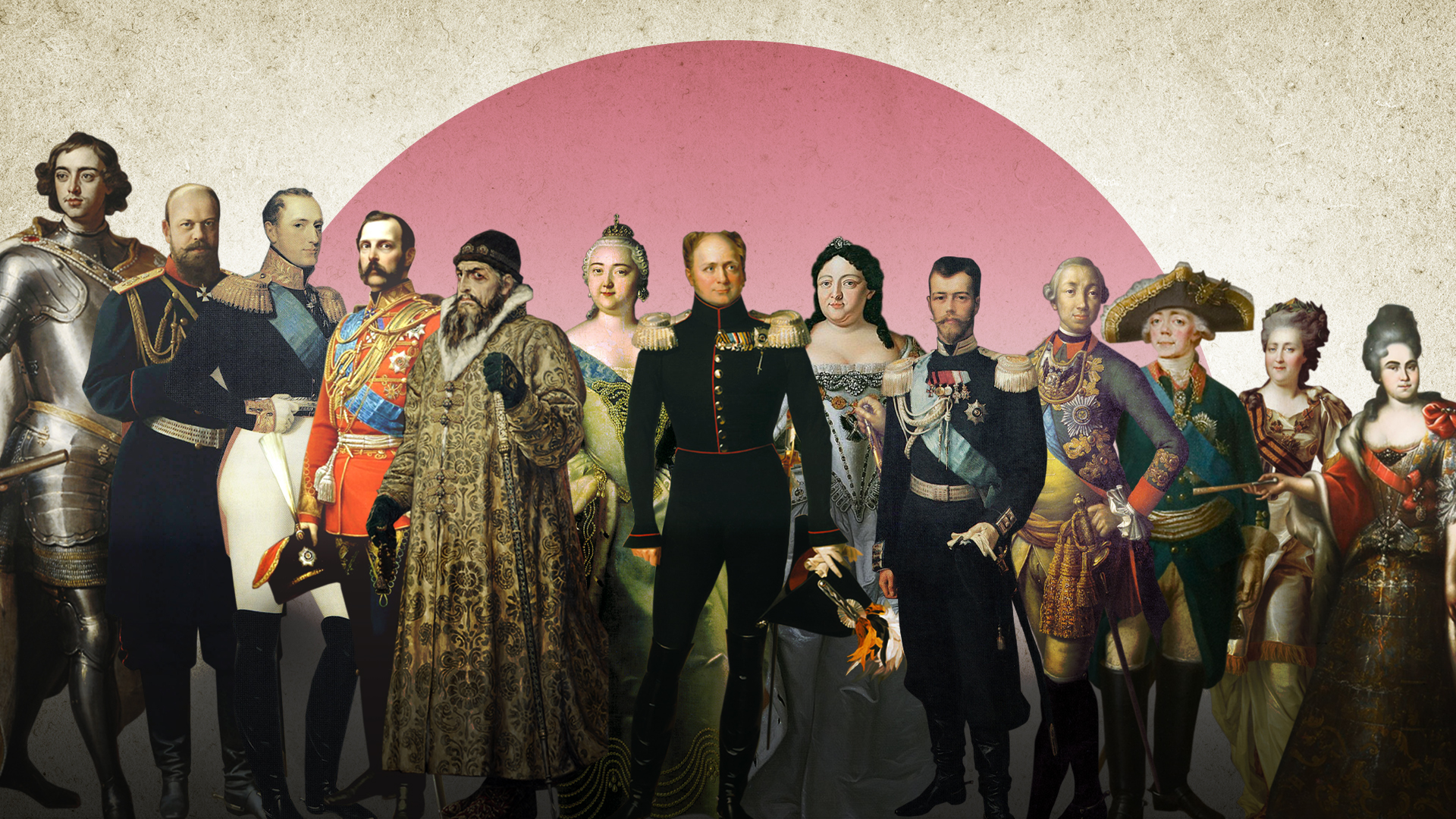
PHOTOS of the last ball hosted by the Romanov royal family - in COLOR
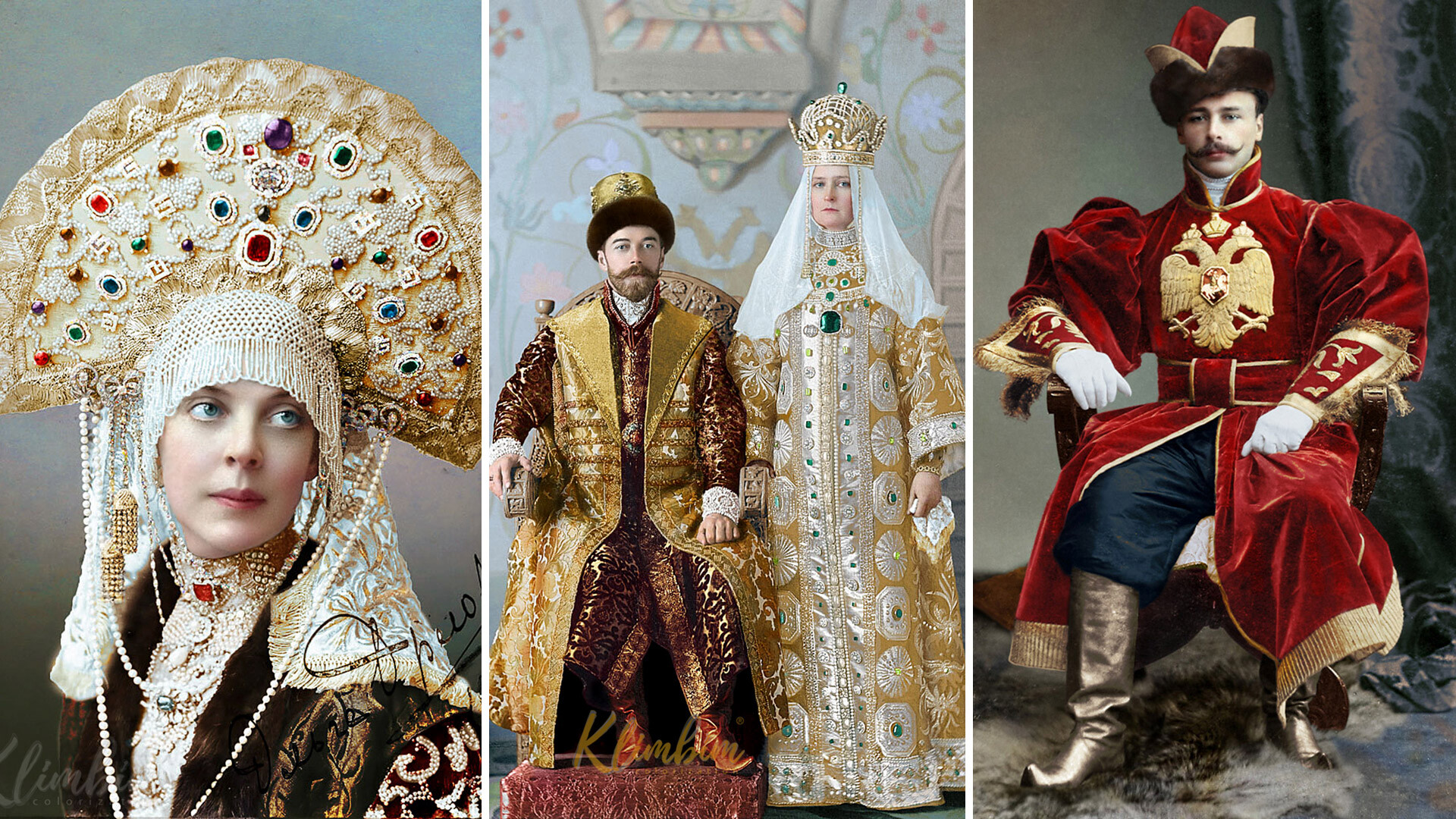
The ball, thrown in 1903 in St. Petersburg’s Winter Palace, was significant for a number of reasons. Firstly, it marked the 290-year anniversary of the Romanov royal dynasty, celebrated lavishly by the entire empire; secondly, it was a costume party with the elites excited to play dress-up (and not go broke in the process); and, finally, it was destined to become the last not only for the dynasty, but for the Russian Empire as a whole. Nobody ever attempted something like it after 1903: the Russo-Japanese war, followed by the Revolution of 1905 marked the beginning of great change and hardship for the country.
Now, thanks to artist Olga Shirnina (aka ‘Klimbim’), we can catch a glimpse of this legendary event… in color!
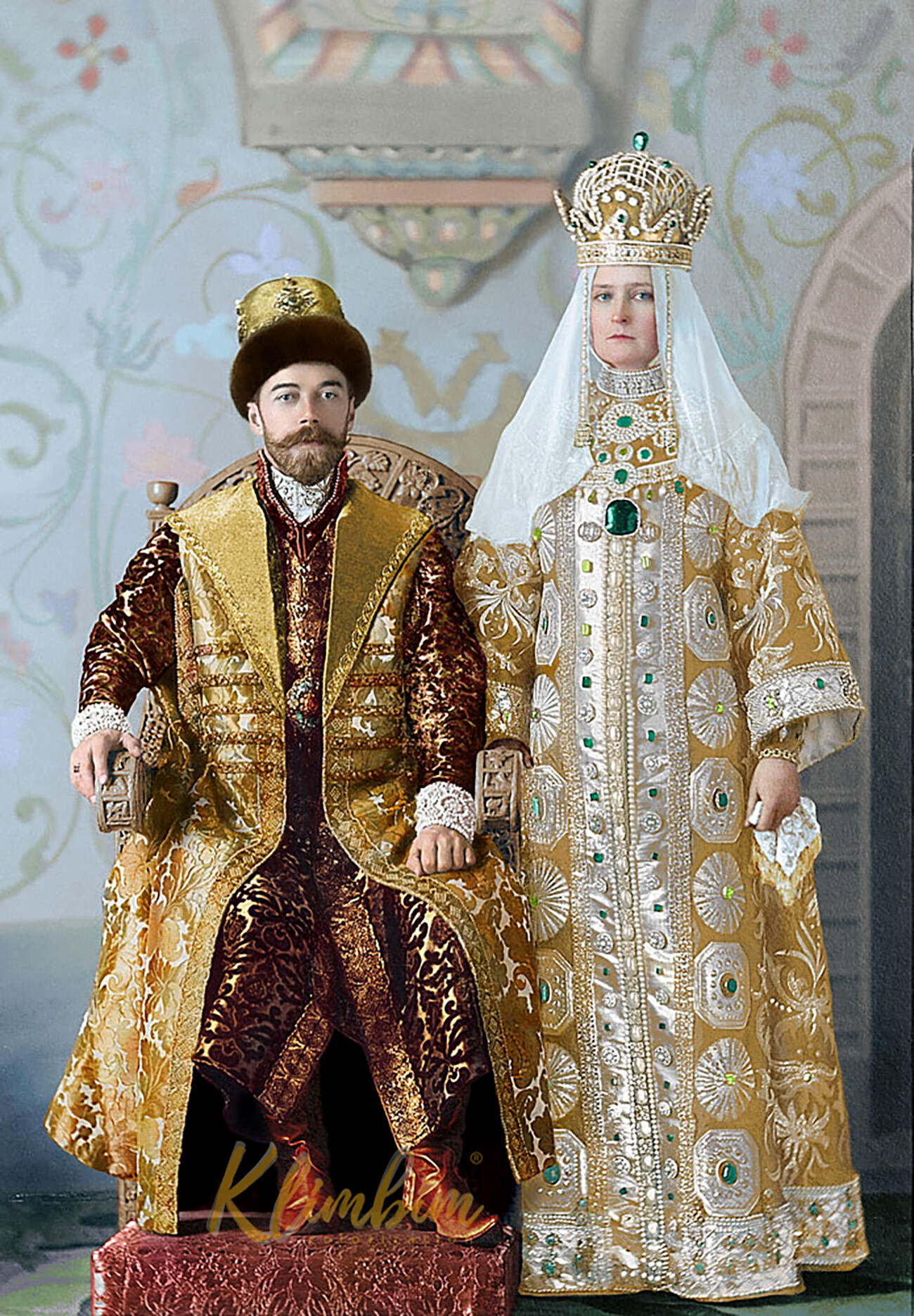 Nicholas II and Alexandra Fedorovna
Nicholas II and Alexandra Fedorovna
It was Alexandra Fedorovna’s grand plan to host the costume ball, where all 390 guests were instructed to dress up in 17th century costumes. Court women were instructed to appear in sundresses and kokoshniks, encrusted in precious stones, with men having to show up wearing expensive lavish overcoats and furs in the boyar style.
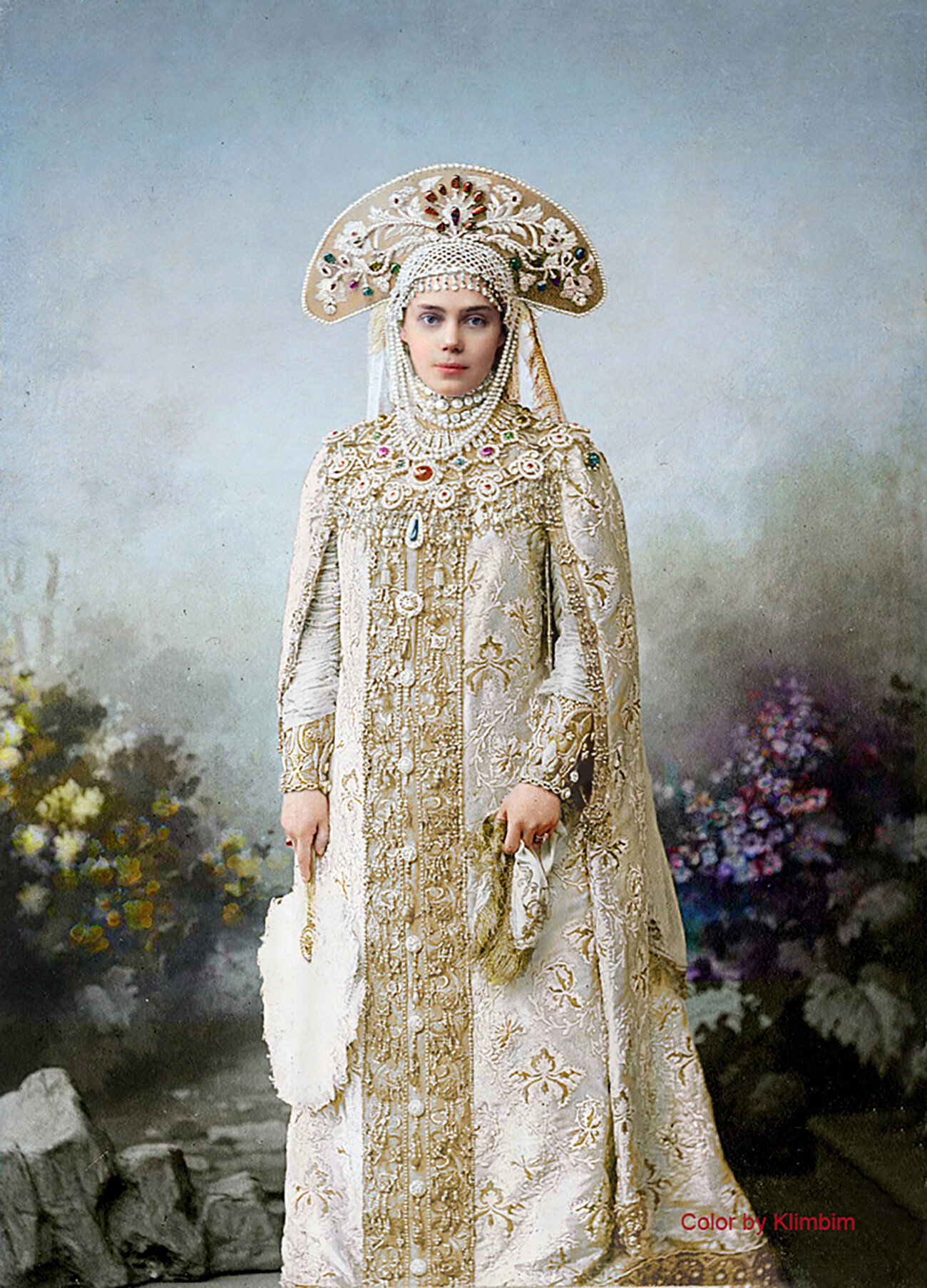 Grand Duchess Kseniya Aleksandrovna
Grand Duchess Kseniya Aleksandrovna
According to the memoirs of that period, the idea came to the empress a few days before the arrival of 1903, as she argued with guests at breakfast over an old-Russian outfit that was supposedly destined to go out of fashion. The elites were adamant that the trend would return, having already witnessed the love affair with all things foreign in the days of Peter I and believing that fashion was coming back full circle. With the arrival of Niholas II’s father Alexander III (a notable enemy of liberal reform), traditional Russian things were making a comeback in all spheres.
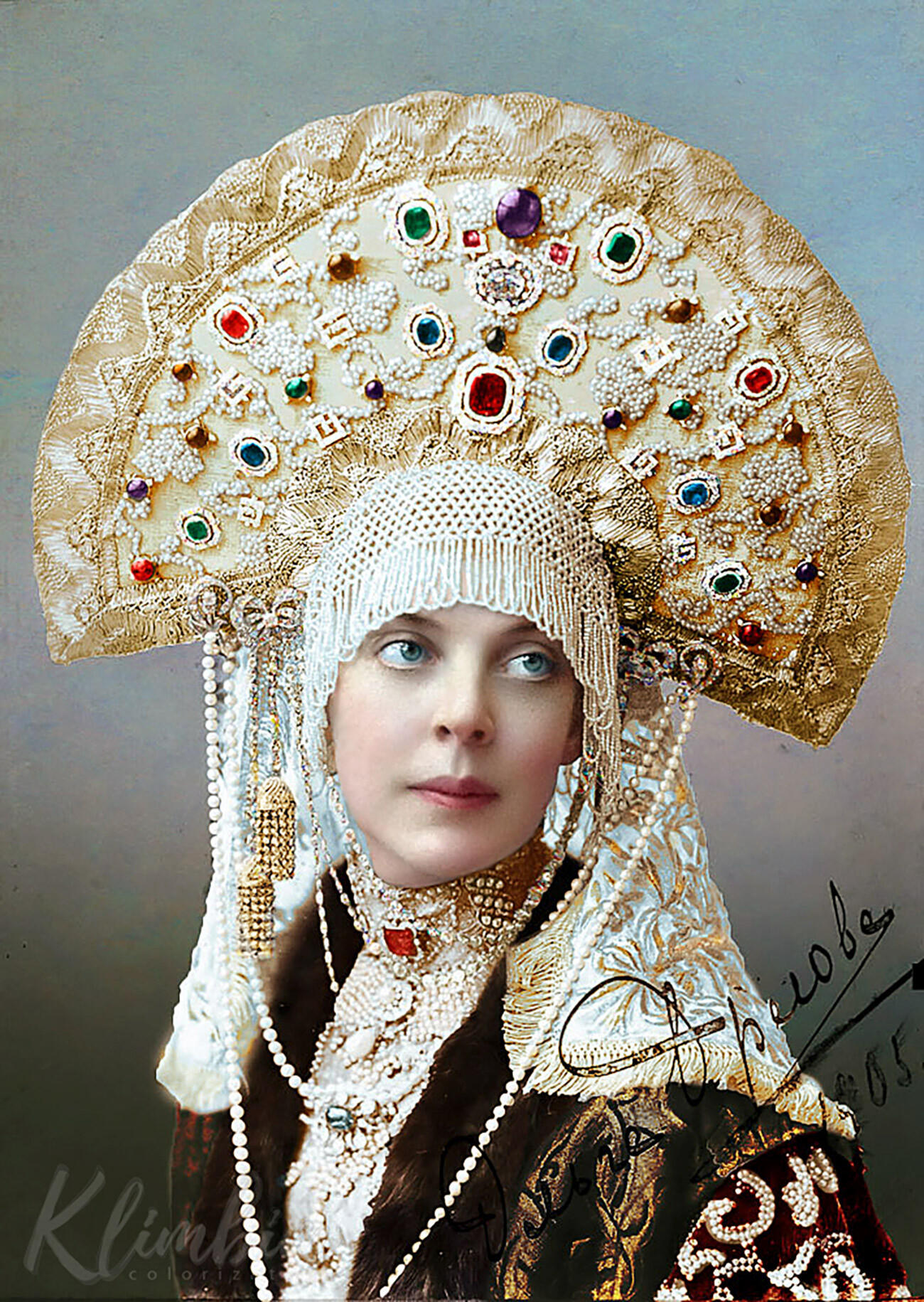 Portrait of Countess Olga Orlova
Portrait of Countess Olga Orlova
The first reaction that came from members of the royal court, however, was negative. “Russian costumes cost a fortune… Besides, dancing in heavy dresses and furs isn’t exactly fun. Surely, poor Alexandra Fedorovna has an unlucky knack for the weird and inappropriate,” wrote Ivan Vsevolozhsky, the former director of the Imperial Theaters.
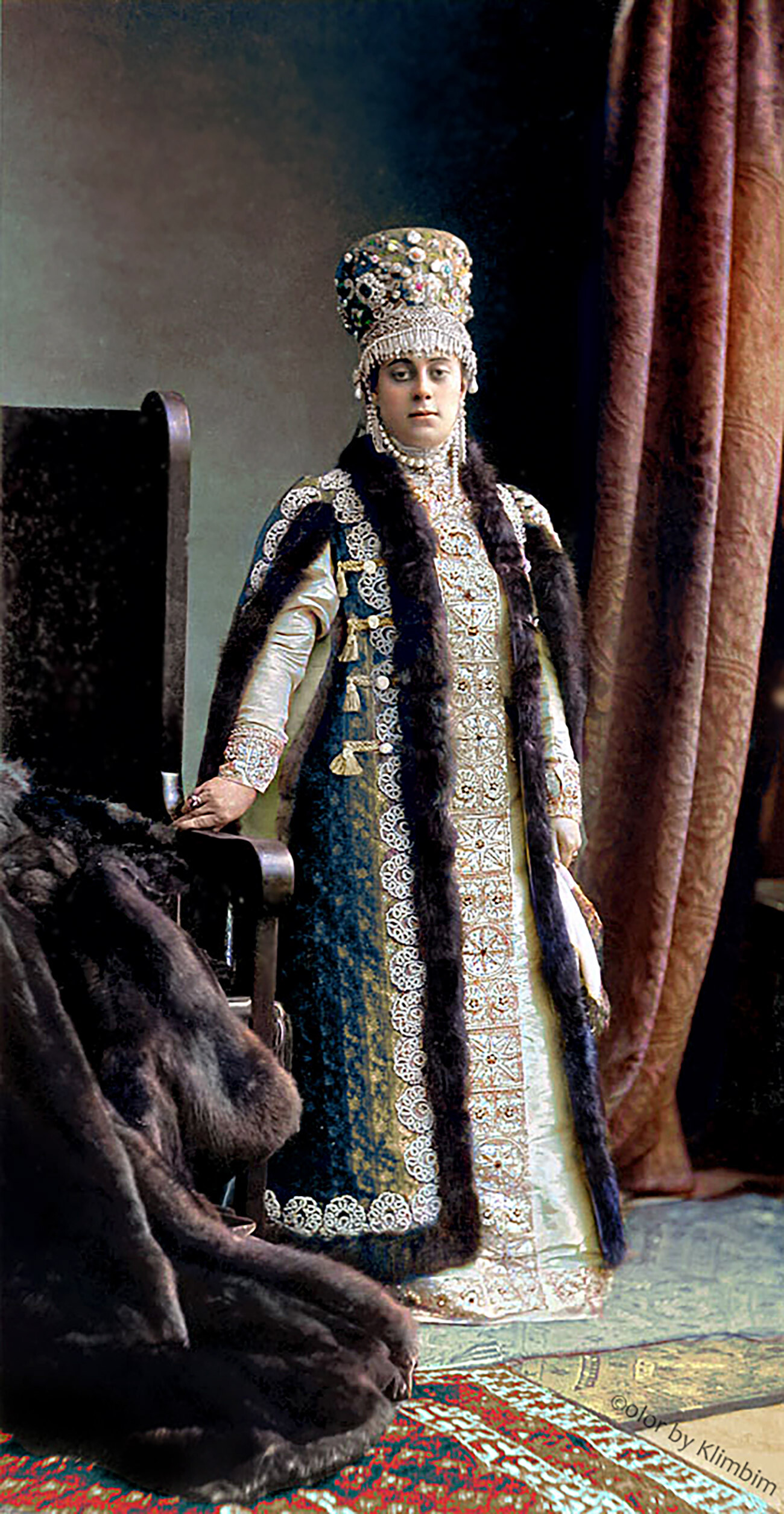 Countess Maria Orlova-Davydova
Countess Maria Orlova-Davydova
Indeed, the cost of the costumes elicited extreme reactions. The materials alone, required for Nicholas’ costume (which included two types of velvet and gold brocade) cost 437 rubles, which, at the time, was equivalent to a tsarist army general’s monthly pay.
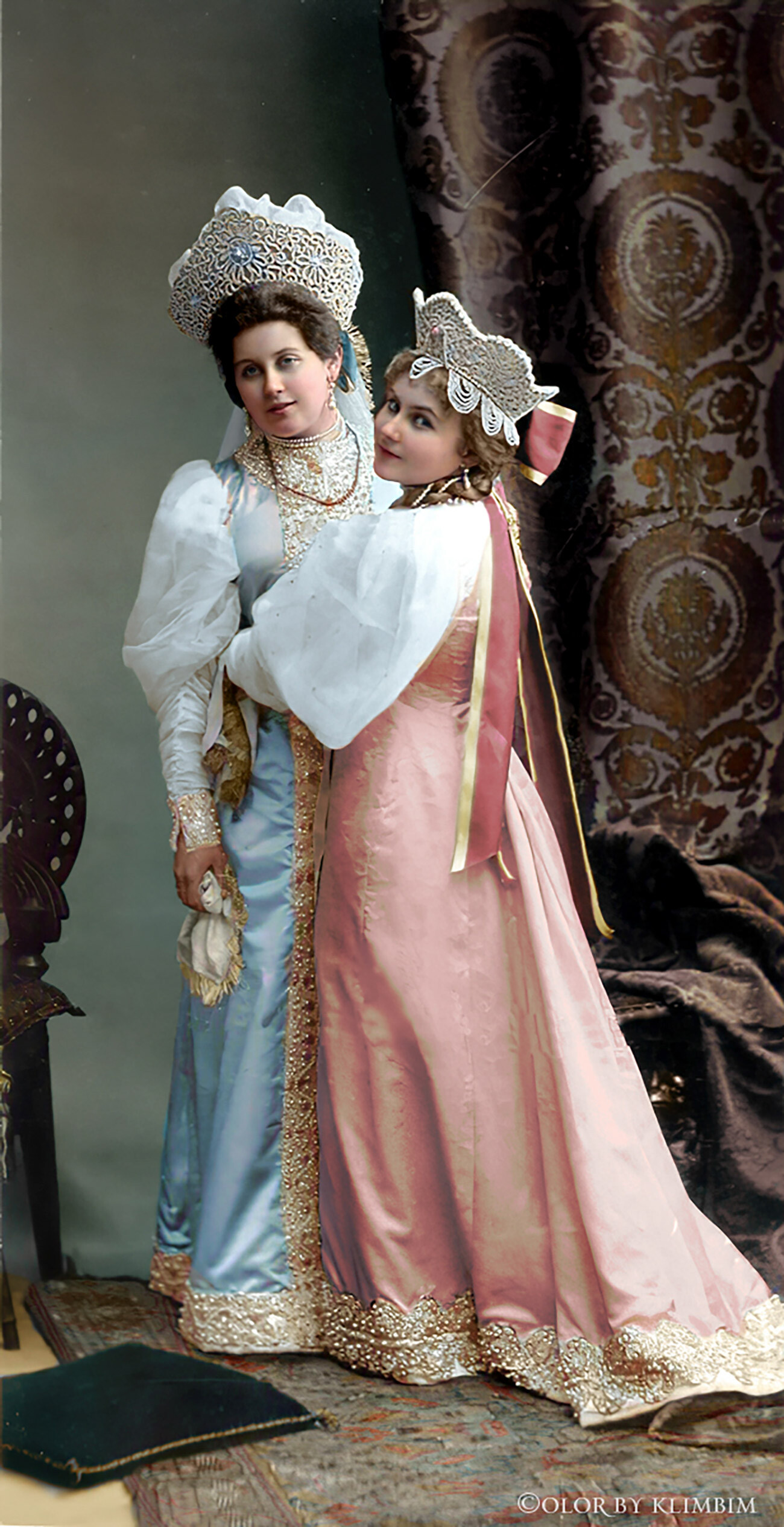 Lady-in-waiting Anna Taneeva with sister
Lady-in-waiting Anna Taneeva with sister
For the reasons outlined above, some 100 of the guests declined participation. The empress, however, was adamant about things going as planned: guests who could not afford costumes had them custom-made on the treasury’s dime, with the only condition being that, after the ball, the costumes would be donated to the Imperial Theaters.
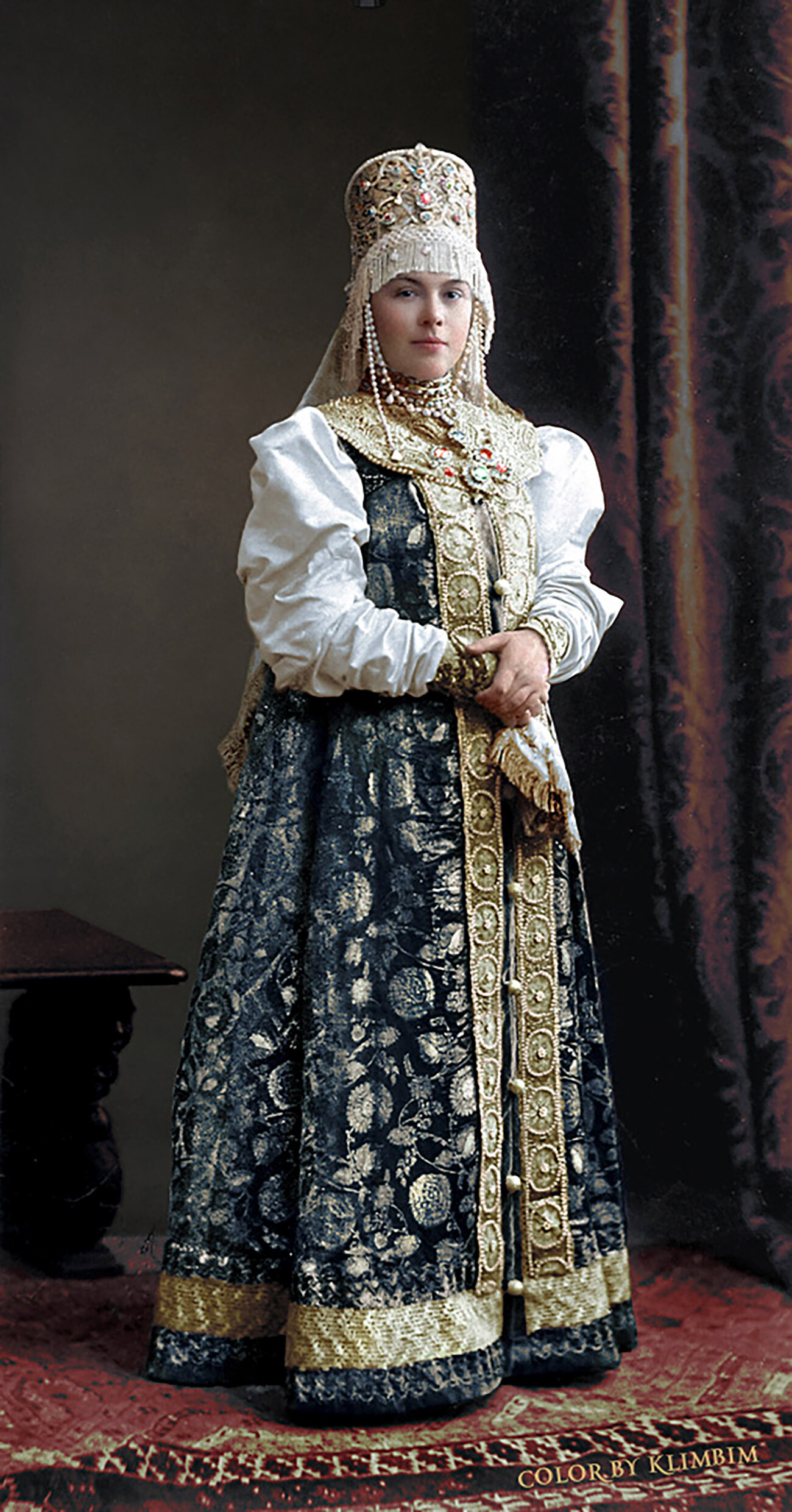 Countess Natalya Karlova
Countess Natalya Karlova
Preparation for the ball had started and there was chaos in the capital: there were so many orders for classical costumes that tailors couldn’t make it in time. Princess Kseniya Aleksandrovna was given an unfinished dress barely an hour before the start of the party, for which the tailor was later dubbed a “freak”.
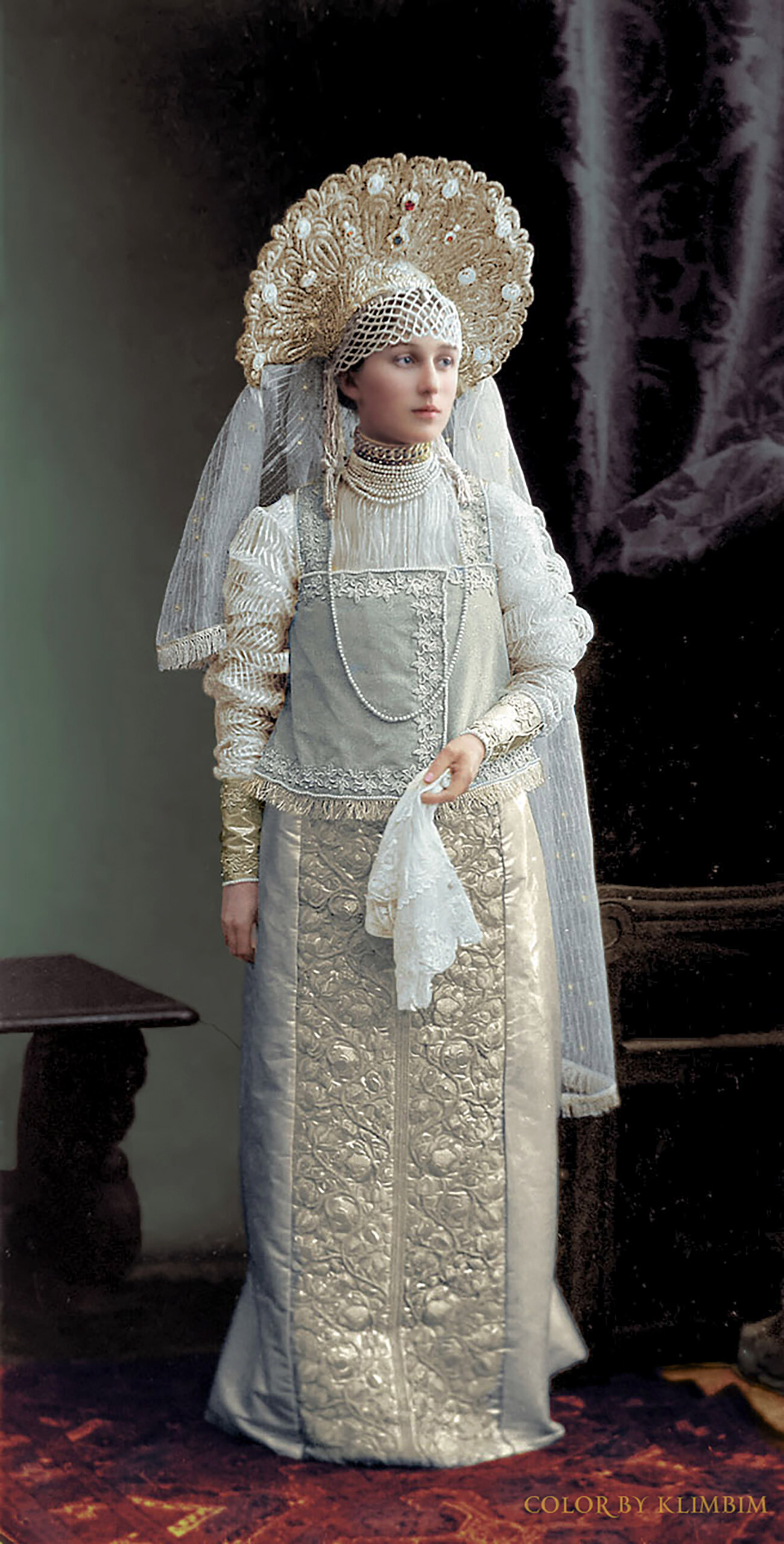 One of the participants at the ball
One of the participants at the ball
The scrupulous ladies of St. Petersburg spent their entire time perusing Moscow’s ‘Museum of the Old’, attempting to study the antiquated trends and accessories of the classical Russian wardrobe.
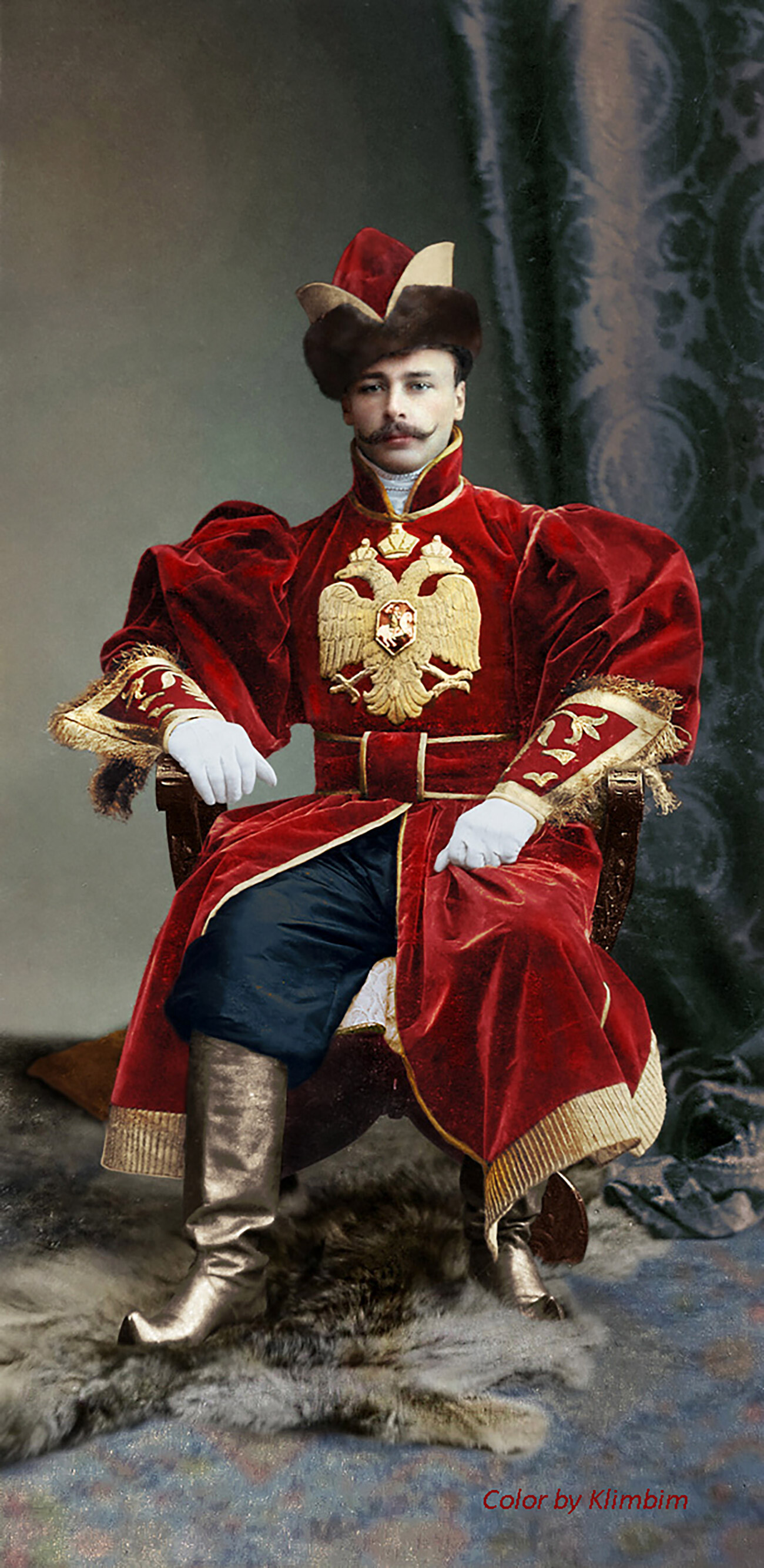 Cornet of the Life Guards cavalry regiment A. A. Kolyubakin
Cornet of the Life Guards cavalry regiment A. A. Kolyubakin
There was an abundance of family jewels in vintage frames at the party. Princess Zinaida Yusupovna’s dress hem and kokoshnik, for instance, were encrusted with precious stones from Cartier; and the costume came with not one - but two - kokoshniks and separate sets of sleeves. The emperor (who came as Tsar Aleksei Mikhailovich) went all out with a genuine tsar’s hat and scepter, which the servants had to fetch from the Armory in Moscow.
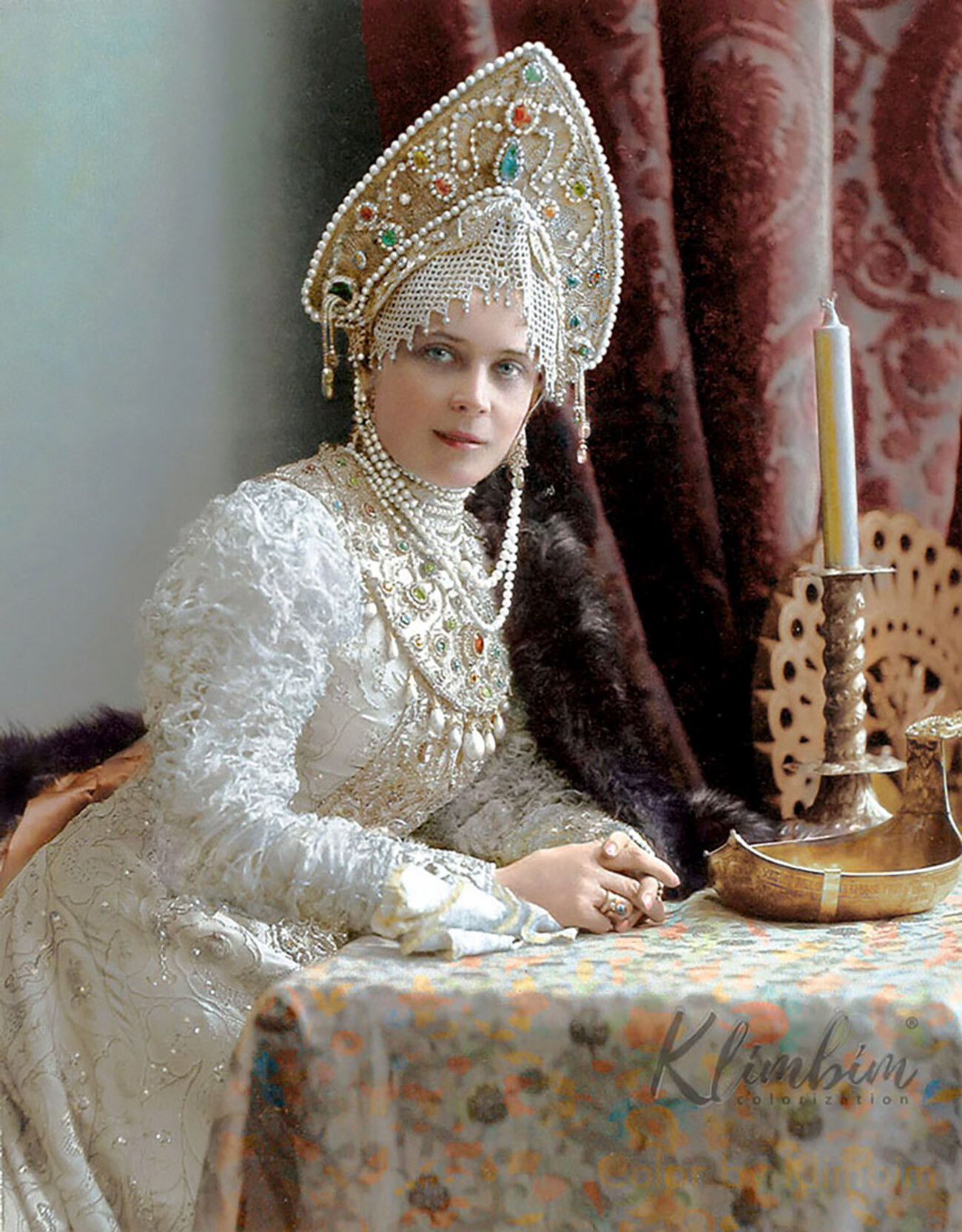 Princess Zinaida Yusupovna
Princess Zinaida Yusupovna
This temptation to use genuine treasures from past epochs even led to an uncomfortable situation. At the ball, Nicholas’s younger brother, Grand Prince Mikhail Aleksandrovich, managed to lose a large diamond clasp for his fur hat, which used to belong to Paul I.
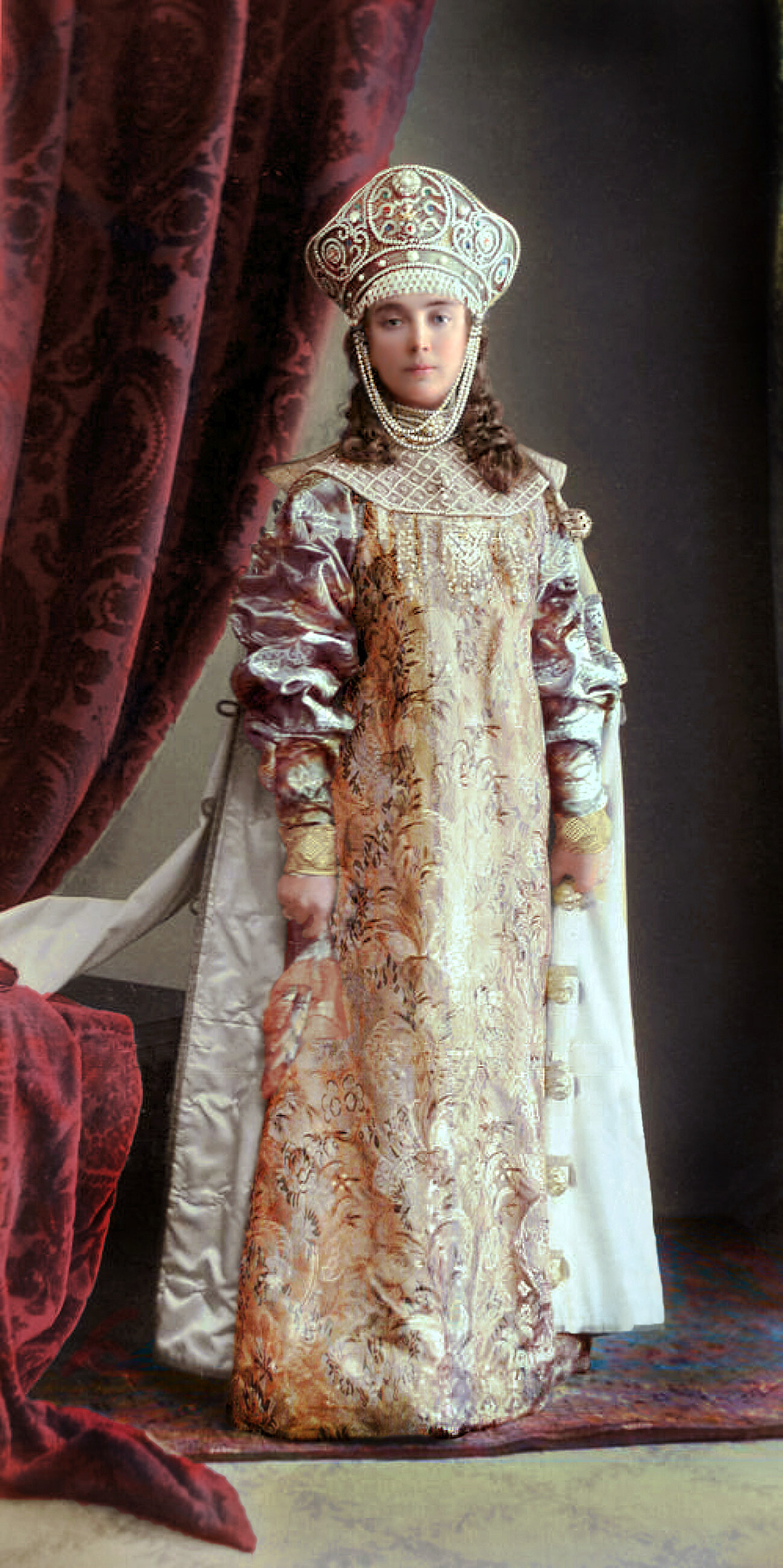 Princess Elizaveta Obolenskaya
Princess Elizaveta Obolenskaya
The party lasted for two days - 24-26 February. It began with a classic “Russian bow”: when all the guests approach the emperor and empress and, well - bow. This was followed by an opera showing and, later - the ball itself, involving feasts and dancing.
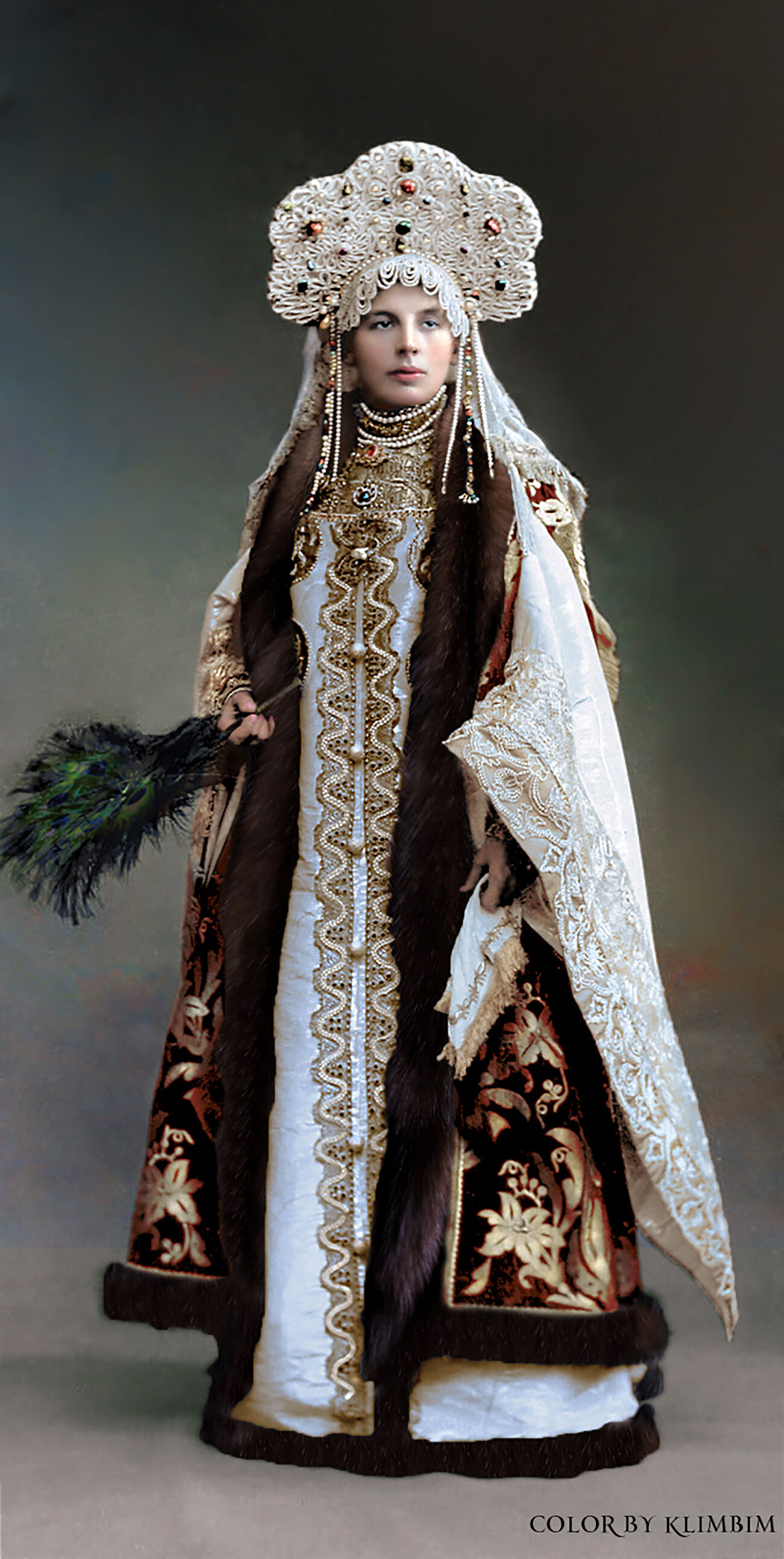 Countess Sofya Ferzen
Countess Sofya Ferzen
The menu, meanwhile, wasn’t all that fitting for the chosen period - it proved difficult to get the court to change their dietary habits. There were, for example, consome with truffles, Venetian salad with lettuce, Rouen-style duck, chilled charlottes and so on. Counteracting all that was the Archangel choir, singing old songs of Russian bogatyrs.
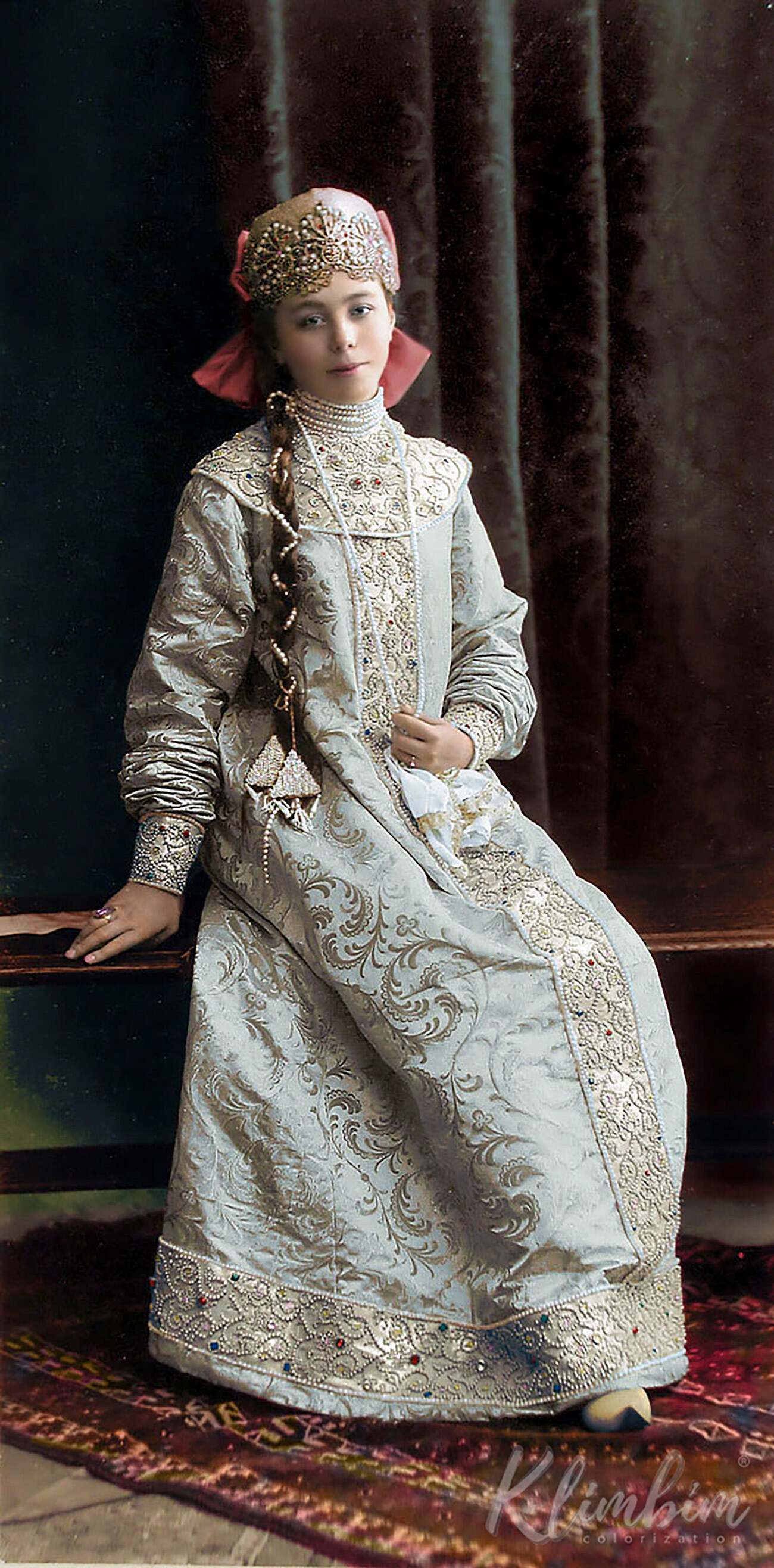 Lady-in-waiting Elizaveta Sheremetyeva
Lady-in-waiting Elizaveta Sheremetyeva
The 1903 ball created a furore in Russian society, leading to the so-called ‘Russian resurgence’ in St. Petersburg’s society: national motifs were once again in vogue and in demand.
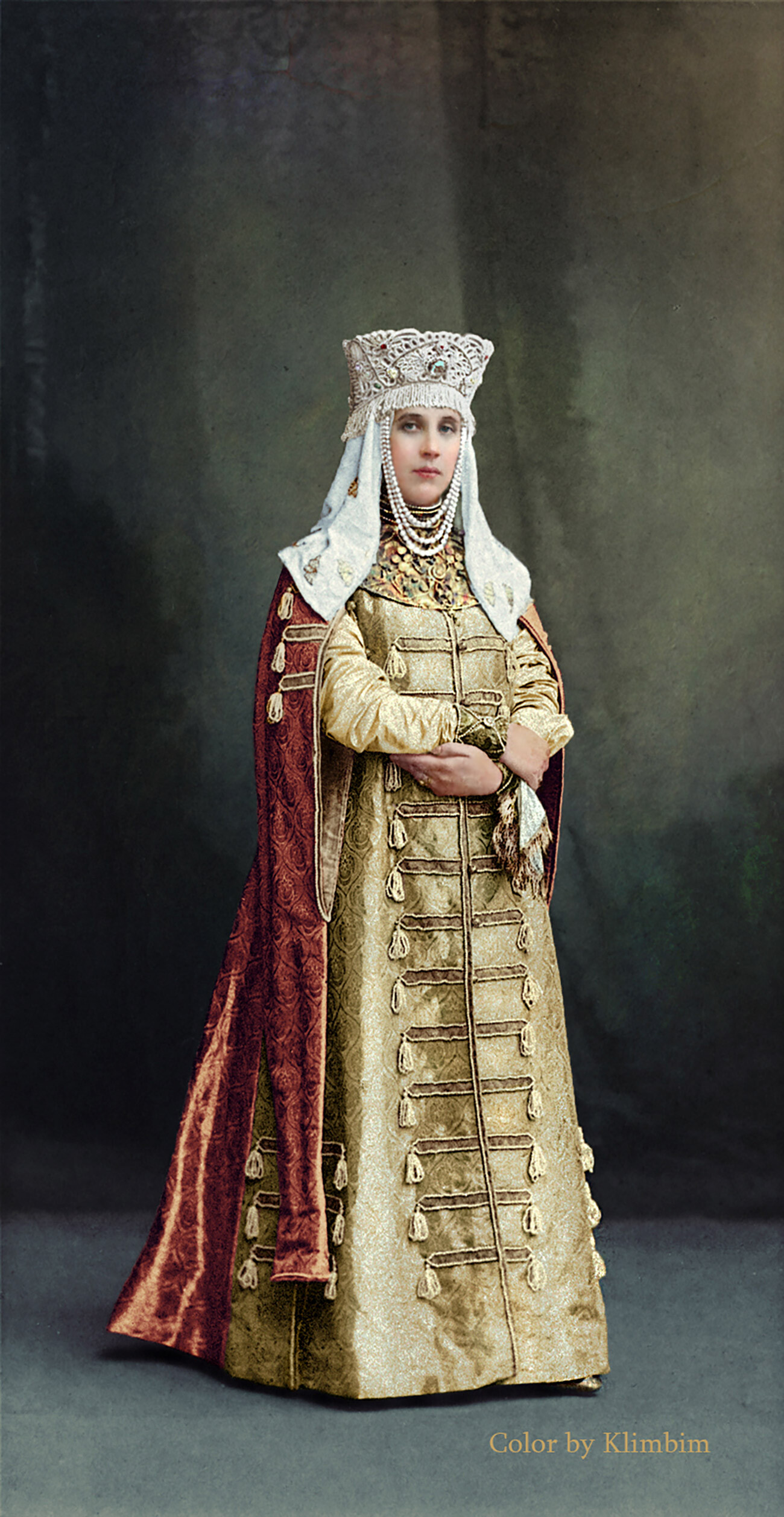 Grand Princess Kseniya Aleksandrovna
Grand Princess Kseniya Aleksandrovna
A year on from the event, Empress Aleksandra Fedorovna received an album of photos that we can view today. It was commissioned with charity in mind and mass-produced, bearing the inscription: “To the Russian warriors in the Far East”.
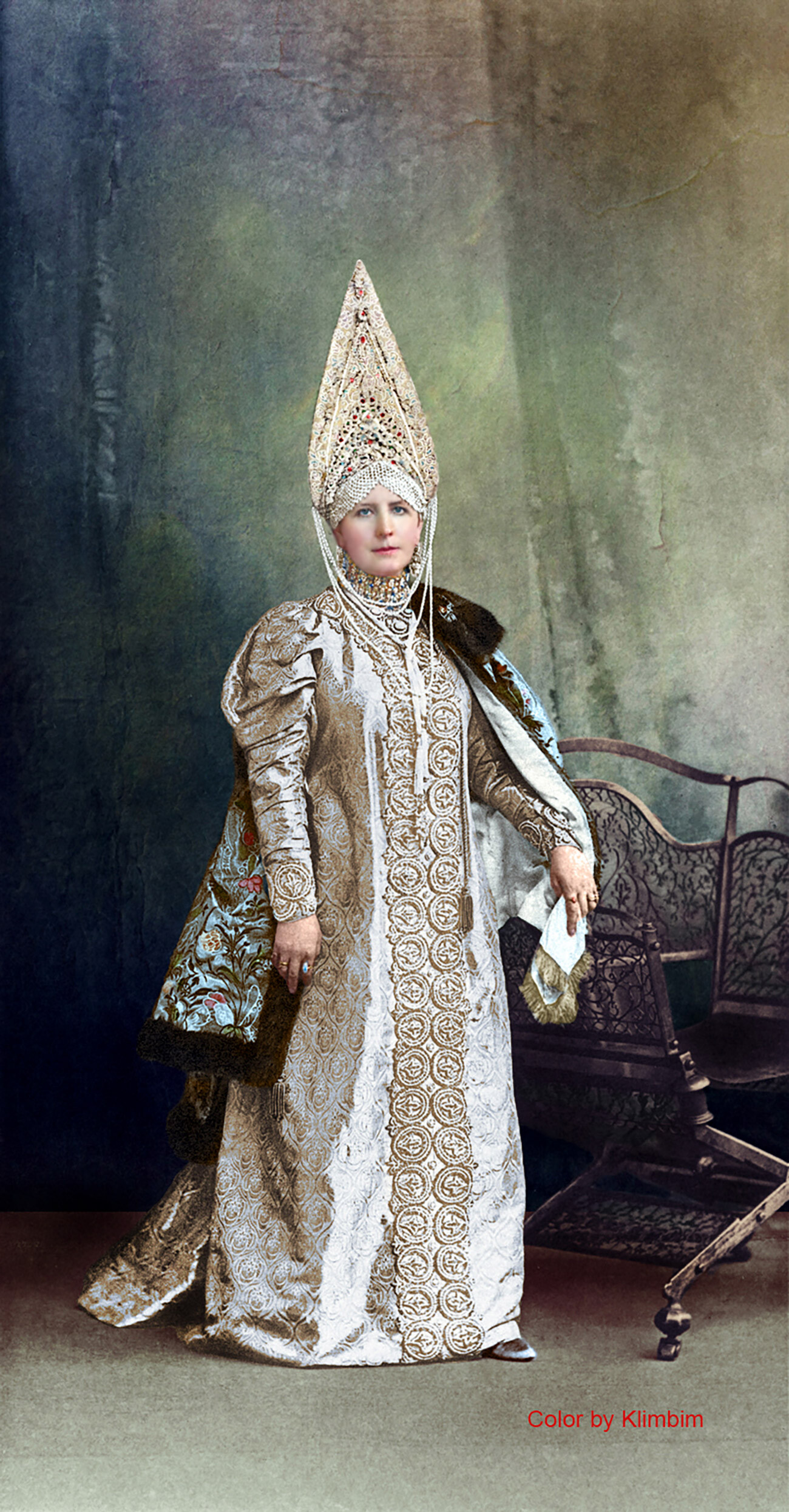 Countess Maria Keller
Countess Maria Keller
It was, however, no longer possible to hold such lavish parties with the arrival of 1904. There was one final court ball, but a very modest one, held only for the closest circle.


